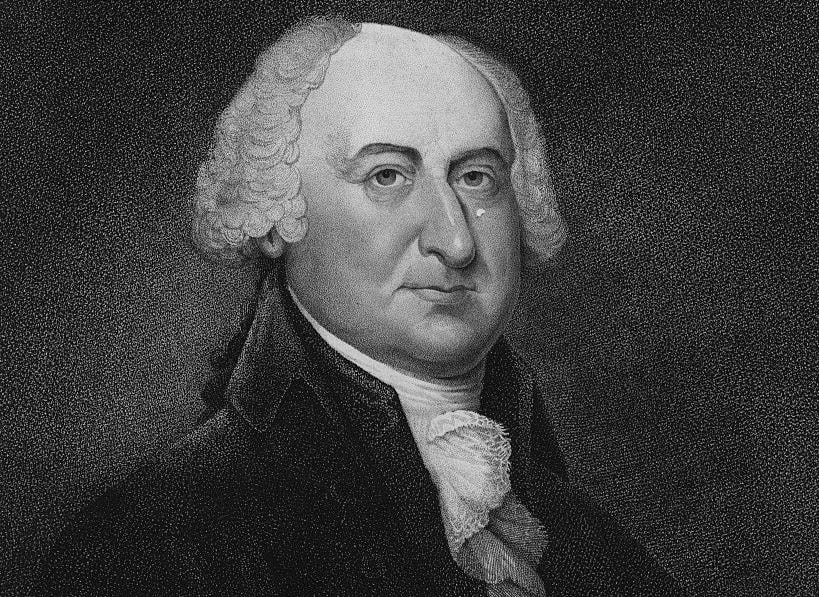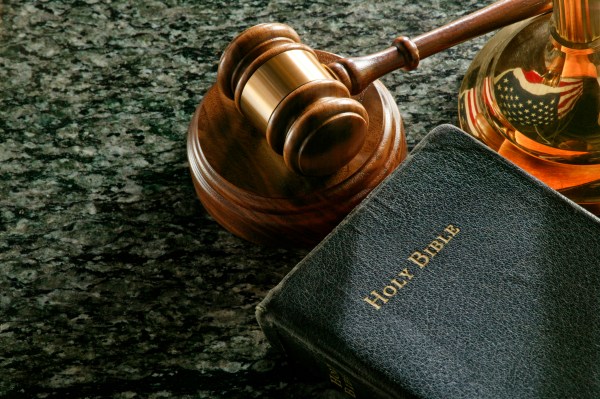If you care about religious liberty, as I do, then you should feel pretty good about the current moment, decades in the making. Almost 30 years ago, Congress passed the Religious Freedom Restoration Act in near unanimous fashion. It was supported by an unusual coalition of organizations, including the Southern Baptist Convention’s Ethics and Religious Liberty Commission and the American Civil Liberties Union.
RFRA was a response to the Employment Division v. Smith decision issued by the Supreme Court and authored by the late Justice Antonin Scalia. In Smith, Scalia removed the government’s requirement to prove a compelling state interest before burdening religious freedom. The decades since have seen religious liberty prevail again and again at the Supreme Court, affirming the right of religious groups to meet on college campuses, the right of faith-based companies to act according to their values, the right of Christian organizations to receive generally available public benefits, the right of artists to refuse projects that violate the conscience, the right of faith-based adoption providers to participate in state programs, the right of religious organizations to choose their own criteria for ministers, the right of religious private schools to participate in a state benefit, and the right of a religious coach to conduct personal prayer after a sporting event.
For this, Christians should be grateful and should continue to fight to protect religious liberty—a right not granted by the government, but given by God. As Baptist leader John Leland said while championing the First Amendment contained in the Bill of Rights, “Religious matters are to be separated from the jurisdiction of the state, not because they are beneath the interests of the state but, quite to the contrary, because they are too high and holy and thus are beyond the competence of the state.”
And yet, we should be sober-minded about the important social structure that is required to support liberty: virtue. John Adams was sanguine about the new experiment in human government he and his fellow Founders had create: “Our Constitution was made only for a moral and religious People. It is wholly inadequate to the government of any other.”
Adams and his fellow patriots created a system that ensured maximum liberty, that diffused power among three branches, away from a central government toward the states. They did this because they understood, in part, that humans tend toward tyranny and that even rulers with the most benevolent intentions can accumulate power in unhealthy ways. But they also understood that without a populace that is undergirded by virtue, this experiment would eventually fail.
Virtue is a concept that neither party seems to want to champion, in this era where grievance drives our politics. The left, with its boundary-pushing approach to sexual ethics, has embraced a form of neo-puritanism, but it mostly it consists of empty signaling on climate change, race, and silencing critics of the dogmas of the sexual revolution. The right, once a champion of virtue (I came of age in the 1990s when Bill Bennet’s Book of Virtues was a best-seller) when it was a convenient cudgel against a president known for moral deficits, now seems regularly to reward the outlandish, the peevish, and even the vulgar.
As a conservative Christian, I’d like to see our institutions return to this emphasis on virtue, highlighting traits like courage, honesty, and prudence. A return to virtue is not something that, admittedly, necessarily motivates in an election year, for there is not much the levers of government can do to change the human heart. Our laws do legislate morality, they do spring from moral judgements, and yet the catechizing in moral virtue cannot happen in the halls of government, but in our homes and churches and schools.
Christian theology teaches us that freedom is not given as a license for self-gratification, but as a motivation for morality. In Galatians, a book about grace and spiritual freedom, Paul writes:
Or you were called to be free, brothers and sisters; only don’t use this freedom as an opportunity for the flesh, but serve one another through love. For the whole law is fulfilled in one statement: Love your neighbor as yourself (Galatians 5:13-14).
This, of course, is written to Christians about the way they handle their newfound salvation from sin, but I think the principle can apply to nations as well. Having been given liberty, will we use that liberty for self-gratification or for love, for materialism or for service?
A renaissance of virtue won’t begin in Congress or the White House, because politics is downstream from culture. It must begin in our communities, in our churches, and in our families. What kind of ideas and character traits are we championing for our children and anyone over whom we have influence? And could we get political leaders who embody the kind of character we’d like to see around us? Would it hurt our politicians to occasionally resist the cheap one-liners and call people to something higher?
Too often, it seems, our public witness has emphasized liberty without prioritizing virtue. In doing so, we allow ourselves to make moral concessions about the way we speak, about the people we call our heroes, about the state of our discourse. As long as we are on the “right” side of a particular issue, it doesn’t seem to matter how we conduct ourselves.
Of course, even talking about virtue can become a kind of empty posturing in and of itself, a condescending way of separating ourselves from the unwashed other
Genuine spiritual character is not about broadcasting our own righteousness, but a humble commitment to embodying what Christians call the “fruits of the Spirit”: love, joy, peace, gentleness, goodness, peace. Christians believe this kind of transformation comes only through a supernatural experience, an encounter with God through Jesus Christ. Yet too many of us who claim such a testimony resist virtue formation and, at our worst, see it as weakness. But virtue is not a kind of milquetoast “niceness.” Often it is exemplified by genuine courage and willingness to sacrifice for a worthy cause.
When asked, once, about the new country he had helped create, Benjamin Franklin famously responded that it was “a Republic, if you can keep it.” Liberty is a vital ingredient in keeping our republic, but it is not enough. Having secured generational protections, we should now go to work promoting the other foundation stone the Founders insisted upon: virtue.
Daniel Darling is the director of the Land Center for Cultural Engagement at Southwestern Baptist Theological Seminary and author of several books, including, The Dignity Revolution, A Way With Words, and The Characters of Creation.








Please note that we at The Dispatch hold ourselves, our work, and our commenters to a higher standard than other places on the internet. We welcome comments that foster genuine debate or discussion—including comments critical of us or our work—but responses that include ad hominem attacks on fellow Dispatch members or are intended to stoke fear and anger may be moderated.
You are currently using a limited time guest pass and do not have access to commenting. Consider subscribing to join the conversation.
With your membership, you only have the ability to comment on The Morning Dispatch articles. Consider upgrading to join the conversation everywhere.